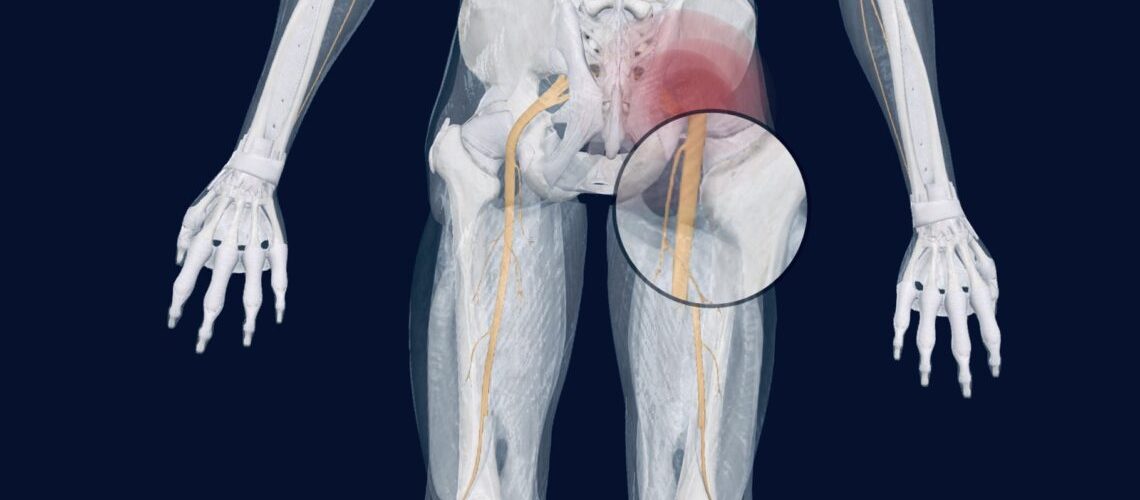Sciatica is the term often given to nerve pain travelling down the leg. As a result, symptoms can include weakness, numbness, pins and needles, electric shock sensations, and aching. The pain can vary from infrequent and irritating, to constant and incapacitating. So nerve pain does not discriminate. It can affect anyone, but the good news is that for most people, an episode of sciatica will start to settle within four to six weeks. You will not do any harm by keeping mobile and staying at work. In fact, this can often be beneficial although you may need to adapt the way you do certain activities and get up from sitting more frequently.
Osteo Health offers effective non-invasive treatment options for Sciatica. The combination of the mentioned below modalities gives the most desired result.
Shockwave therapy stimulates regeneration and reordering of the nerves, which in turn activates the conjunction of muscle and neurons, and increases functional activity.
Clinical study: Effects of ESWT on Denervation Atrophy and Function Caused by Sciatic Nerve Injury
Perform some gentle back and leg stretches to maintain flexibility in your tissues and encourage your body’s natural healing and recovery process. Strengthening exercises will help to prevent your back from getting weaker and can reduce your chances of experiencing a recurrence in the future. Try to link your exercises to activities you do regularly and perform these exercises regularly and gently. Pain is normal and to be expected so don’t worry if some of the exercises are uncomfortable. Just do what you can.
Laser therapy improves recovery and positively accelerates peripheral nerve regeneration.
Clinical study: Stimulation Effect of Low Level Laser Therapy on Sciatic Nerve Regeneration in Rat
Massage therapy is useful, non-pharmacological interventions for reducing or eliminating pain and sciatica symptoms associated with low back pain.
Clinical study: Effectiveness of Mass age therapy in healing Low Back Pain and Sciatica Symptoms
If you experience any of the following symptoms contact your clinician urgently:
• An inability to pass urine when you feel that you need to go.
• Loss of control of your bowels.
• Numbness around your genital area.
• Inability to get an erection.
• Worsening weakness in both legs.
Be patient with your mind and body. The long-term outlook is good.
REFERENCES:
Pubmed, Physitrack.

